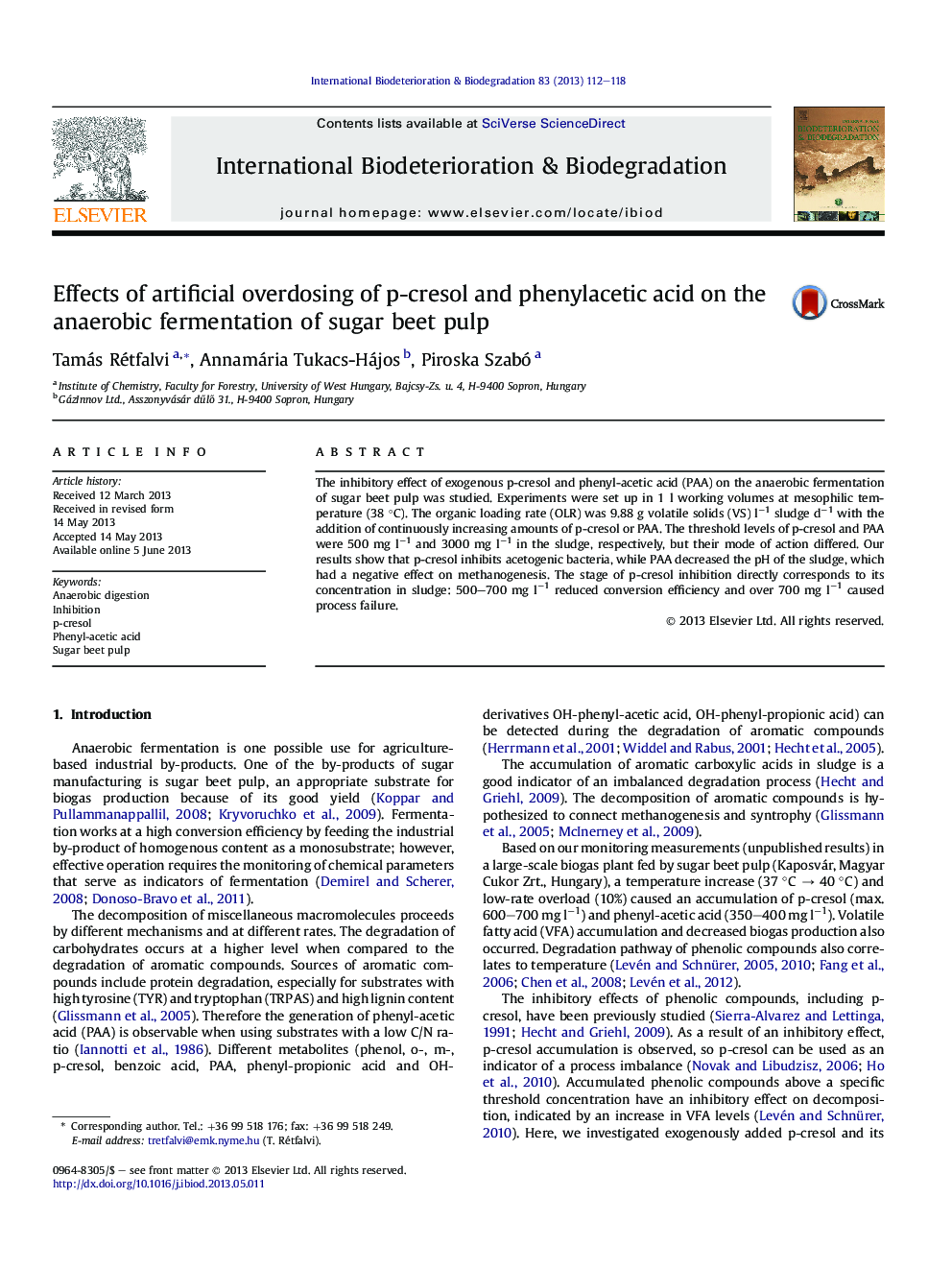| Article ID | Journal | Published Year | Pages | File Type |
|---|---|---|---|---|
| 4364890 | International Biodeterioration & Biodegradation | 2013 | 7 Pages |
•p-cresol and phenyl-acetic acid inhibition on anaerobic fermentation was studied.•Semi-continuous sugar beet pulp fed laboratory scale digesters were used.•Stage of inhibition was correlated with the p-cresol concentration.•The inhibitory effect of p-cresol can be counteracted by feeding acetic acid.•The phenyl-acetic acid inhibited methanogenesis by its acidity.
The inhibitory effect of exogenous p-cresol and phenyl-acetic acid (PAA) on the anaerobic fermentation of sugar beet pulp was studied. Experiments were set up in 1 l working volumes at mesophilic temperature (38 °C). The organic loading rate (OLR) was 9.88 g volatile solids (VS) l−1 sludge d−1 with the addition of continuously increasing amounts of p-cresol or PAA. The threshold levels of p-cresol and PAA were 500 mg l−1 and 3000 mg l−1 in the sludge, respectively, but their mode of action differed. Our results show that p-cresol inhibits acetogenic bacteria, while PAA decreased the pH of the sludge, which had a negative effect on methanogenesis. The stage of p-cresol inhibition directly corresponds to its concentration in sludge: 500–700 mg l−1 reduced conversion efficiency and over 700 mg l−1 caused process failure.
